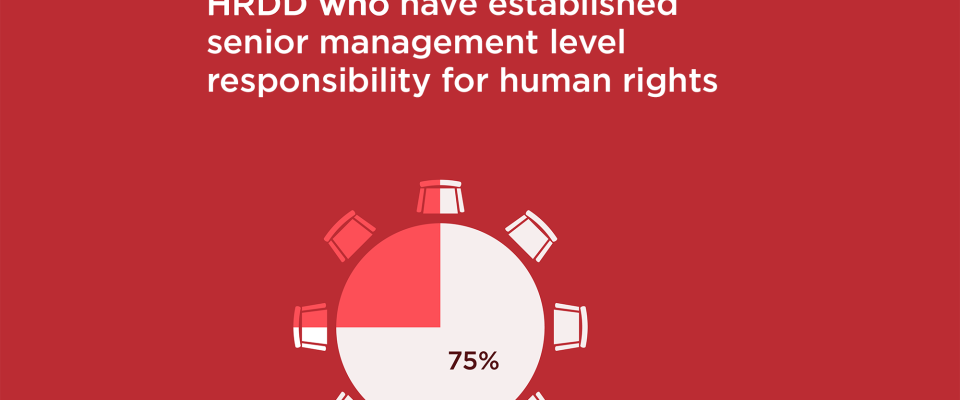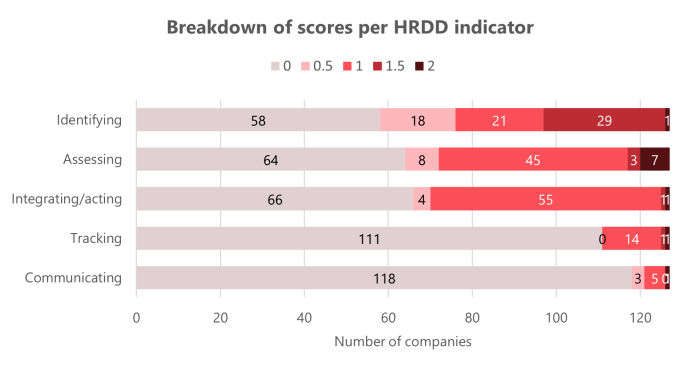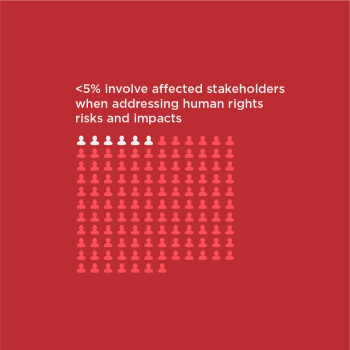Key finding
Elevating human rights responsibilities to the board and senior management level appears to be key for better action on human rights due diligence

Human rights due diligence (HRDD) is the process that allows companies to translate their responsibility to respect human rights into practice. It enables businesses to identify, prevent and mitigate their adverse impacts and to account for how they address them. Despite HRDD being a cornerstone of socially responsible business conduct, WBA continues to find a significant gap in its implementation. In 2022, 46 of the 127 companies assessed scored zero on HRDD. Although this is a 10% reduction compared to 2020, progress could be faster, which is why investor and legislative action continue to be needed.
Across the three sectors, companies that improved their scores on HRDD did so on the initial steps of a due diligence process, namely identifying, assessing, integrating and taking action on human rights risks and impacts (B.2.1-B.2.3), and not on tracking and communicating these actions (B.2.4-B.2.5). However, almost half (49%) of all companies assessed still do not meet the requirements for the initial steps of the process, and the majority of those that improved their scores from zero have only made incremental progress, scoring an average of 1.7 out of a possible 15.
Our assessment shows a strong positive correlation between companies’ scores on assigning board responsibility for human rights (A.2.2) and responsibility and resources for day-to-day human rights functions (B.1.1), and overall HRDD scores. Out of the companies that improved the most on HRDD, the majority (75%) have senior level responsibility for human rights and allocate resources and expertise for the day-today management of human rights within their operations and supply chains. Conversely, most of the companies that scored zero on HRDD (70%) do not have these resources in place.
This is a clear indication that making human rights a strategic concern at the highest levels of the company is necessary to prevent and address negative impacts on people. For those companies lagging behind, elevating these responsibilities to board and senior management level could facilitate more effective implementation of HRDD and create a virtuous circle between company and board actions.
Moreover, companies are under growing pressure from institutional investors, civil society and governments to improve performance on HRDD. However, the pace and scale of companies’ actions are underwhelming. The limits of market-based and non-legislative approaches to improve corporate respect for human rights are obvious. Therefore, the increasing trend of mandatory HRDD legislation is encouraging. A smart mix of legislative, market-based and non-legislative measures is necessary to close the accountability gap, raise the bar and ensure that companies respect the rights of all affected stakeholders.

